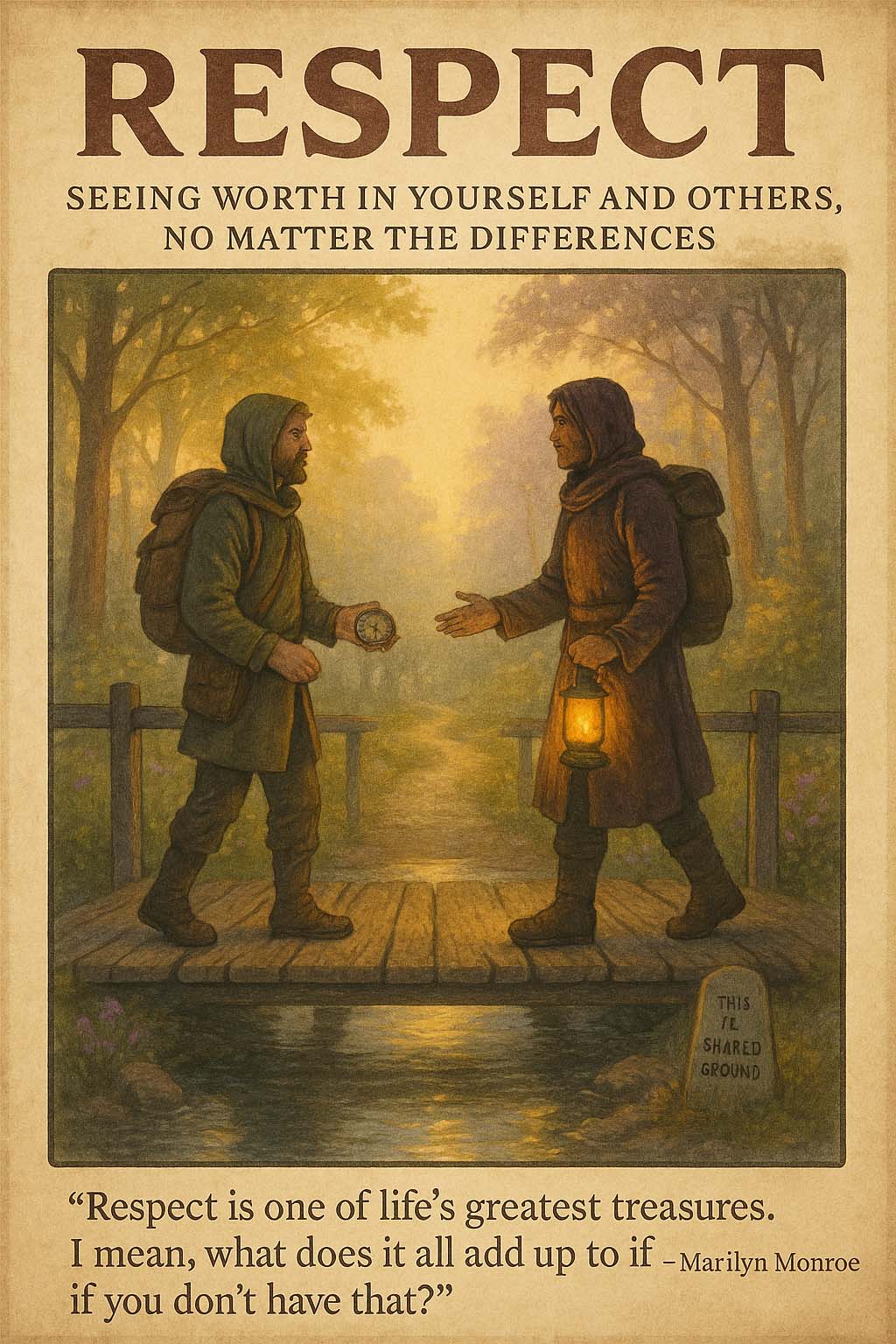
🤝 RESPECT
“Respect is one of life’s greatest treasures. I mean, what does it all add up to if you don’t have that?” – Marilyn Monroe
Respect is the quiet foundation beneath every meaningful connection. It’s how we say, “You matter.” For ADHDers—who’ve often felt dismissed, misunderstood, or corrected more than celebrated—respect is both a healing balm and a courageous act.
To live this value means extending dignity not only outward, but inward. It means respecting your own time, energy, boundaries, and brilliance—even when they don’t match the norm. It means refusing to shrink or shame yourself to fit into someone else’s frame.
Respect doesn’t mean agreement. It means honouring humanity—yours and others’. For ADHDers, who may experience intense emotions, quick judgments, or impulsive reactions, respect can become a grounding pause: “Can I speak my truth—and still hold space for theirs?”
This value helps shape how we treat others in the workplace, in friendships, in families. But just as importantly, it guides how we talk to ourselves when we mess up, when we forget, when we falter. Respect invites you to be firm without forceful, clear without cruel.
🧭 The HOPE Trail Map
- Helps or Harms: Is this thought or action rooted in respect—or in reaction?
- Own My Values: I want to be someone who lives with dignity, both given and received.
- People and Pursuits: Who treats me with steady respect—even when I struggle? What spaces help me honour difference with compassion?
- Enact and Evaluate: Today, I’ll offer respect in one interaction—and check if I’m offering it to myself, too.
⚠️ Trail Challenges
- ADHDers may struggle with self-respect when internalised messages frame them as “too much” or “not enough.”
- Impulsivity may lead to disrespectful tone or timing, even with good intent.
- RSD (Rejection Sensitivity Dysphoria) can distort others’ tone or feedback.
🪧 Trail Markers: Small Steps Toward Respect
- Use self-talk that mirrors how you’d speak to someone you care about.
- Listen fully before responding—especially when emotions are high.
- Set or reinforce one boundary today—not to distance, but to honour connection.
🔥 Campfire Questions for Reflection
- What does respect feel like—in my body, my voice, my choices?
- How do I want to treat others when I’m at my best?
- Where in my life do I need to restore respect—for myself, or someone else?
Respect isn’t about being right—it’s about being real, and recognising the inherent worth in every person, every part of yourself, every step of the path.
